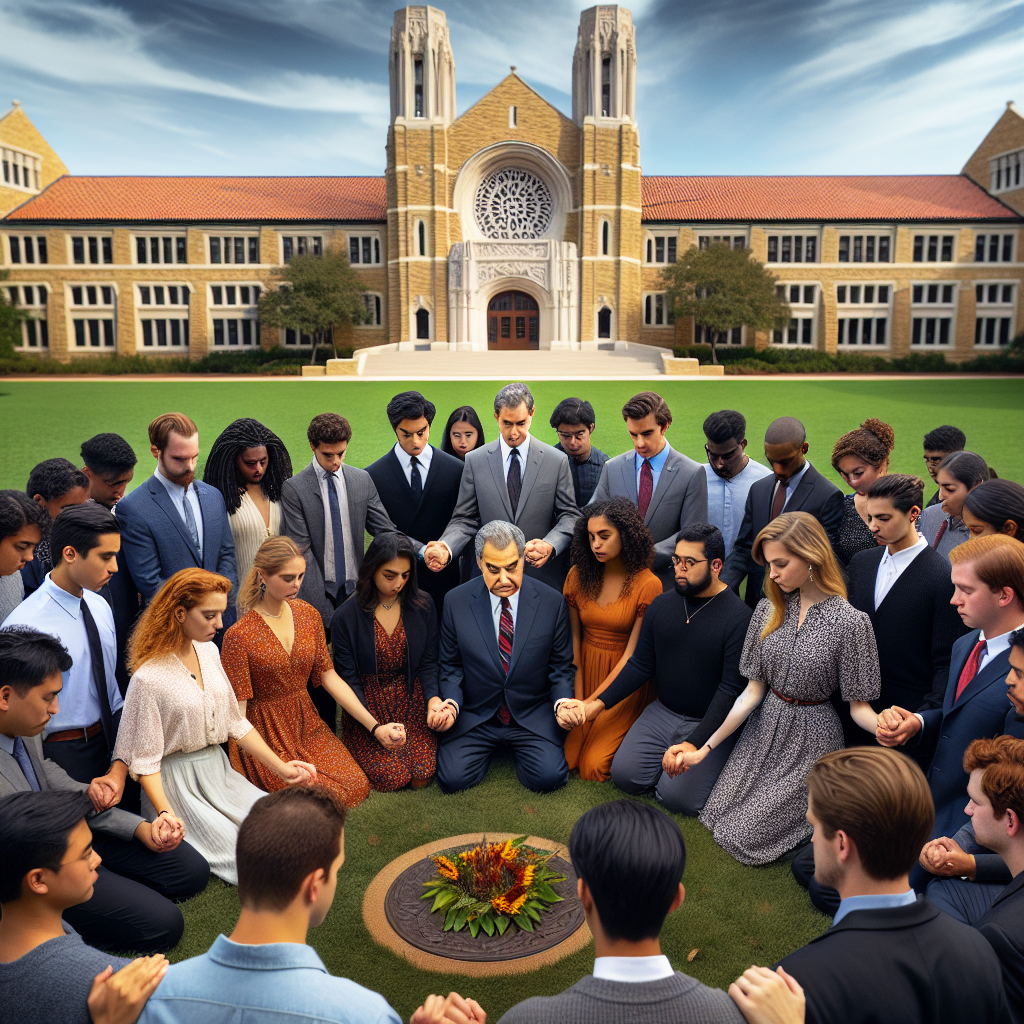
This image was created with AI technology using the Dall-E 3 model. While we strive for accuracy, please note that AI-generated images may not always precisely reflect real-world conditions or appearances.
In a historic turn of events, St. John’s University, a leading Catholic higher education institution in New York, announced the cancellation of Columbus Day celebrations, reflecting a burgeoning trend among universities nationwide. This decision marks a significant shift in the educational landscape, as more institutions grapple with the legacy of Christopher Columbus and the broader implications for curricula and campus culture.
St. John’s University joins a growing roster of universities that have decided to cancel Columbus Day, a significant departure given its roots in Catholic higher education. The move comes amidst ongoing debates about Christopher Columbus’s legacy and the historical narrative taught across campuses nationwide. By replacing the observance of Columbus Day with Indigenous Peoples’ Day, St. John’s aligns itself with the contemporary movement focusing on inclusivity and historical accuracy. This change underscores the university’s commitment to addressing historical injustices while fostering an environment that respects diversity and acknowledges the complex history of the Americas.
Across New York and beyond, higher education schools are at the forefront of re-evaluating traditional celebrations tied to European colonization. More than a dozen universities have canceled Columbus Day, sparked by student-led initiatives and faculty support to recognize the contributions and struggles of Indigenous populations. This shift reflects broader societal changes where universities are increasingly seen as platforms for social change and awareness. At the heart of this movement is a reconsideration of the narratives presented in educational settings, challenging institutions to reconcile their Catholic affiliations with modern ethical standards.
Administrators at institutions like St. John’s argue that the cancellation of Columbus Day does not erase history but rather enriches it by broadening perspectives and encouraging dialogue. This philosophical pivot is not without controversy, particularly within some Catholic quarters that traditionally view Columbus as a historical Christian figure. Yet, as schools adopt more inclusive practices, they also catalyze critical discussions around colonialism and its impacts, urging students and faculty alike to engage with history in its entirety. Such efforts signify a progressive approach to higher education that prioritizes cultural competence and empathy.
New York serves as a microcosm for national trends in educational reform, where schools like St. John’s lead efforts to reflect current values in their programming. By canceling Columbus Day, these institutions not only respond to student demands but also signal a progressive trajectory in education where diverse histories are recognized and celebrated. This shift is indicative of the broader conversations happening across the country as schools address the dual responsibilities of educating about the past and fostering a more inclusive future.
As more universities join in re-evaluating the observance of Columbus Day, the dialogue around Christopher Columbus’s legacy in education continues to evolve. This movement highlights the significant role of higher education institutions in shaping cultural narratives and advancing social justice. St. John’s University’s decision reflects a broader trend, indicating a shift towards a more inclusive and comprehensive understanding of history. As this transformation unfolds, the commitment to diversity and inclusivity will remain a central pillar in defining the future of education.







